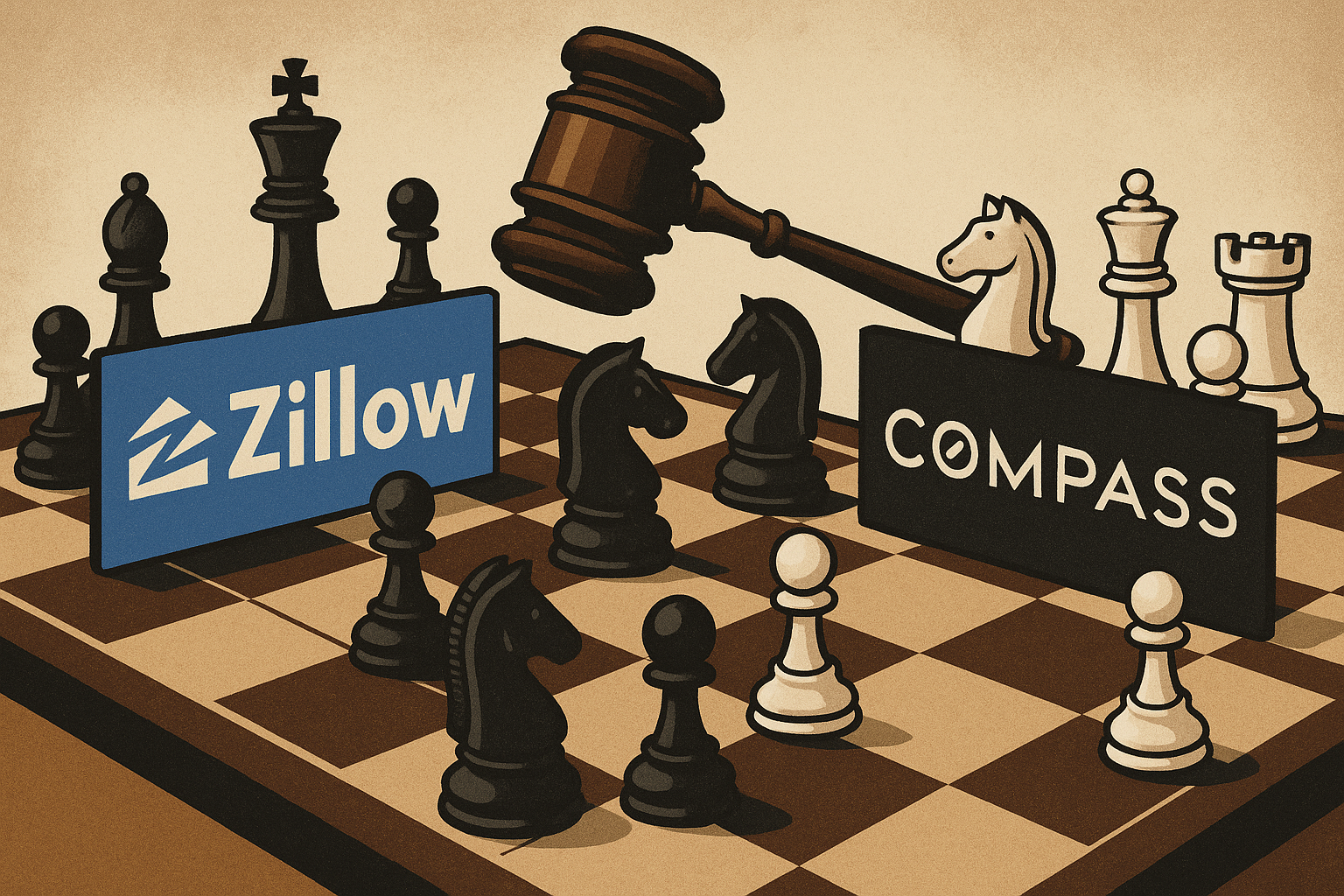
The Compass antitrust lawsuit against Zillow is heating up, and Greg Hague’s latest analysis puts an even sharper point on what’s at stake. I covered the legal filing last week, but Hague’s breakdown highlights just how transformative this case could be for the real estate industry. He’s right: this isn’t just about listing policies or portal preferences. It’s a fight over who controls the digital front door to homebuying—and whether innovation in marketing strategies gets crushed under the weight of a near-monopoly.
What Zillow calls a policy change for transparency, Hague frames as textbook exclusionary conduct. And it’s hard to argue with that lens when you consider the timing: Compass gains traction with its Private Exclusives and extended pre-MLS marketing, NAR adjusts the Clear Cooperation Policy to allow more flexibility, and suddenly Zillow drops a 24-hour rule that effectively bans listings that don’t play by its rules. It’s not about fairness to buyers; it’s about eliminating options that threaten Zillow’s lead-gen machine. The permanent nature of the ban, coupled with Zillow’s platform dominance, underscores the concern.
Hague calls this the most consequential real estate lawsuit of our generation—even more so than Sitzer. That’s a bold statement, but it makes sense when you realize this case goes straight to the heart of how listings get distributed and monetized. It could dismantle Zillow’s grip on online home search and open the floodgates to new models and platforms. The potential for big tech to finally make their move—Google, Meta, Amazon—feels more real now than ever.
What caught my attention is Hague’s sense that this lawsuit could finally bring down the Clear Cooperation Policy. That policy has felt out of step with how many consumers actually want to sell today, and Compass is cleverly linking its case to broader issues of seller choice and innovation suppression. Whether you’re a fan of Compass or not, that argument will likely resonate with a jury—especially one that, like in Sitzer, may not be enamored with corporate gatekeeping.
Hague’s experience brings valuable weight to this analysis, and his take aligns with much of what I predicted when this policy first surfaced. Zillow may have the money to weather a big judgment, but reputational damage and regulatory backlash could be far worse. If Compass succeeds—either through settlement or trial—it won’t just reset the rules. It could reshape the digital landscape in real estate and usher in a wave of innovation we haven’t seen since the MLS went online.
Related article: Compass Sues Zillow Over New Listing Ban That Targets Private Marketing
